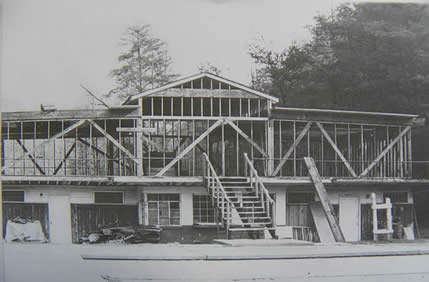Our friends at the Daily Yonder ran a fascinating two-part look at life and living in Rural America. Karl Stauber, President & CEO of the Danville (VA) Community Foundation posted Part I: Finding a New Rural America –looking at a promising ‘New Rural’ paradigm to overcome the dead-or-dying Old Rural ideal–Monday June 6. Today, in Part 2: To Live or Die in Rural America, Stauber writes that “The biggest challenge to the potential of New Rural may be from our increasingly urban leadership and its benign neglect of most things rural.”
Each article is well-worth your time to read in full, but a few points really stuck out as reinforcing the work Appalachian Transition Initiative supports.
Stauber differentiates between Old Rural and New Rural, saying:
Old Rural Areas dominated by a single economic sector that defines the area and set the expectations for wages and education. Commodity production with downward price pressure from globalization. Income and education levels falling behind national averages. Declining population based on declining economic opportunity. Cheap is good, cheaper must be better.
Old Rural communities and regions are haunted by what they used to be, rather than being energized by what they should be.
New Rural Regional approaches to diverse economies based on continual creation of competitive advantage. Broad linkages to urban and global economies seen as critical strategies. Recruit entrepreneurs and immigrants, not low-wage manufacturing. Quality of Life is critical. Environmental quality an asset to be protected, not expended.
It struck me that the issues we put under the umbrella of Appalachian Transition – diversifying our economic base, ensuring opportunities for all the region’s citizens but especially our young people – reflect the needs of many rural areas. A message we hear reflected in the ideas, wants, and visions of Appalachian communities is that there is no one single idea or industry that will create a more just, sustainable and prosperous future in Central Appalachia. But there are a wide variety of efforts and directions to pursue ranging from better and more sustainable utilization of our region’s diverse forestland to improvement in the quality of and access to child care for the region’s kids.
Stauber looks at three examples –Bend, Oregon; Tupelo, Mississippi, and Miner County, South Dakota – for lessons about how a new rural paradigm can come to be. Stauber also outlines 4 major challenges facing rural America today:
- It is highly diverse, so “big, top-down” solutions rarely work.
- Most of Rural America (RA) is losing population, relatively and absolutely.
- Much of Rural America is defined by what it used to be, rather than what it hopes to be.
- Rural areas often see themselves as separate from each other and urban centers rather than being parts of regional economic and ecological systems.
Not to be content with highlighting problems and offering no solution, Stabuer draws on the work of Mark Drabenstott to suggest a set of goals for 21st century New Rural policy:
- Help rural communities and counties think regionally to compete globally.
- Focus public investments on transforming economic opportunities rooted in distinct economic strengths, not on smokestack chasing.
- Spur innovation and entrepreneurship, turning ideas and innovations into economic progress.
- Create a world-class entrepreneurial climate and innovation culture to grow a landscape of new companies, in the process recycling the region’s considerable wealth.
Much of Stauber’s frame of reference throughout both pieces is Agriculture with a capital A—meaning the Big Ag paradigm that has monopolized rural economies throughout the country. Across our region, Coal is a bigger player historically than Ag, but the same need to “start with a broader, more diversified vision” applies to Appalachian Transition efforts equally.
For more on Stauber’s thoughts about how to get to a New Rural—what policies and actions are needed—be sure to read his post to the end. But his conclusion lands on a need for a national understanding of rural issues as more than agricultural inputs for cities:
But the biggest challenge to the potential of New Rural may be from our increasingly urban leadership and its benign neglect of most things rural — or the mistaken notion that a new kind of agriculture will lead to New Rural economy.
A great, thoughtful piece – we’re grateful to see Stauber’s thoughts and ideas on New Rural and will keep thinking through what this means in an Appalachian context. In the meantime, your thoughts, ideas, and suggestions are always welcome.





